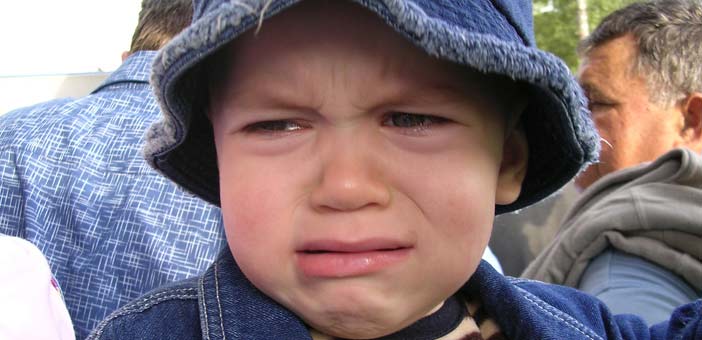Has your toddler ever gone through the clingy phase? Does your child dissolve into tears when you leave her side? Separation anxiety usually starts in babyhood and sometimes stays till the child turns 2. Clingy behavior in a toddler is absolutely natural. It is ultimately a sign that your child considers you what is called a secure base. Babies and toddlers who trust adults through experience that these carers are available and sensitive to their needs and develop secure attachments with them. Most children go through this phase when they are toddlers.

Here are some tips for coping with a clingy toddler:
1. Keep in mind that this is a normal milestone
As a parent, it is distressing to see your child clinging to you when you are stepping out or leaving them at a day care center. But “being clingy” is a crucial part of their development. Separation anxiety begins as early as 6-9months when the baby starts recognizing the difference between mother and others.
2. Do not ignore, discourage or overtly punish clingy behavior
It may be distressing to see your child anxious and upset at the thought of separating from you, but it is also a good sign that children feels secure and close to you. Do not respond to clingy behavior by ignoring or punishing them since this will trigger retaliating traits in them and make them more scared and vulnerable.
3. Increase Predictability
Try to make things more predictable for your child by making a concrete schedule for them. Young children have a very strong sense of sequence and can easily put one event after the other. This will mostly prepare them for the next event and reduce anxiety.
4. Build Autonomy
Children feel accomplished when they attempt new tasks and complete them. This builds their self-confidence. Create new tasks for them like cleaning their toys or collecting table mats on the dinner table. This will help them settle in a new environment with ease.
5. Increase social activities
Socializing with children of the same age can help children develop attachments to their peer groups and also help them realize their own space. This will also develop their social skills, self-confidence and the need to interact with children their age. Encourage routine trips to the play ground and set up regular play dates.
6. Don’t put off separations

While it is difficult to leave a distraught child, don’t try to avoid leaving them. You must take baby steps to initiate small gaps of separation for your toddler. Kids would gradually learn from this experience and will get more resilient. Always communicate with your child well in advance about these little trips away from each other to prepare handle the pangs of separation better.
7. Allow some time to settle in
The pangs of anxiety peaks when the mother gets back to work after her maternity break. If you’re returning to work, make arrangements for your toddler to start spending some time without you either at a nursery or a day-care center. This way, your baby gets familiar with her new environment and slowly gets used to the routine.
8. Keep goodbyes short
Never try to sneak away from your child as it breaks the trust between both of you. Instead, stay calm and wave goodbye to them. Appear strong and smiling such that your baby also waves you back with a smile on her face. Isn’t it the best thing you would want to carry while dropping off your child?
9. Reassure yourself
Children get anxious when the mother is around. As soon as they leave, children settle down in their environment easily. You must stop worrying about how your child is doing once you have left them crying. Try not to come back and check on your kids. Rather, make a call to their carer and check if he or she is doing fine. Keep reassuring yourself.
10. Schedule your calls with the carer
There is no need to be hysterical after you have dropped off your child. Schedule a time with your child’s carer to discuss how they getting on. Very soon, you will clear all hurdles and a day will come when your child will be happily waving at you while you leave them off.
